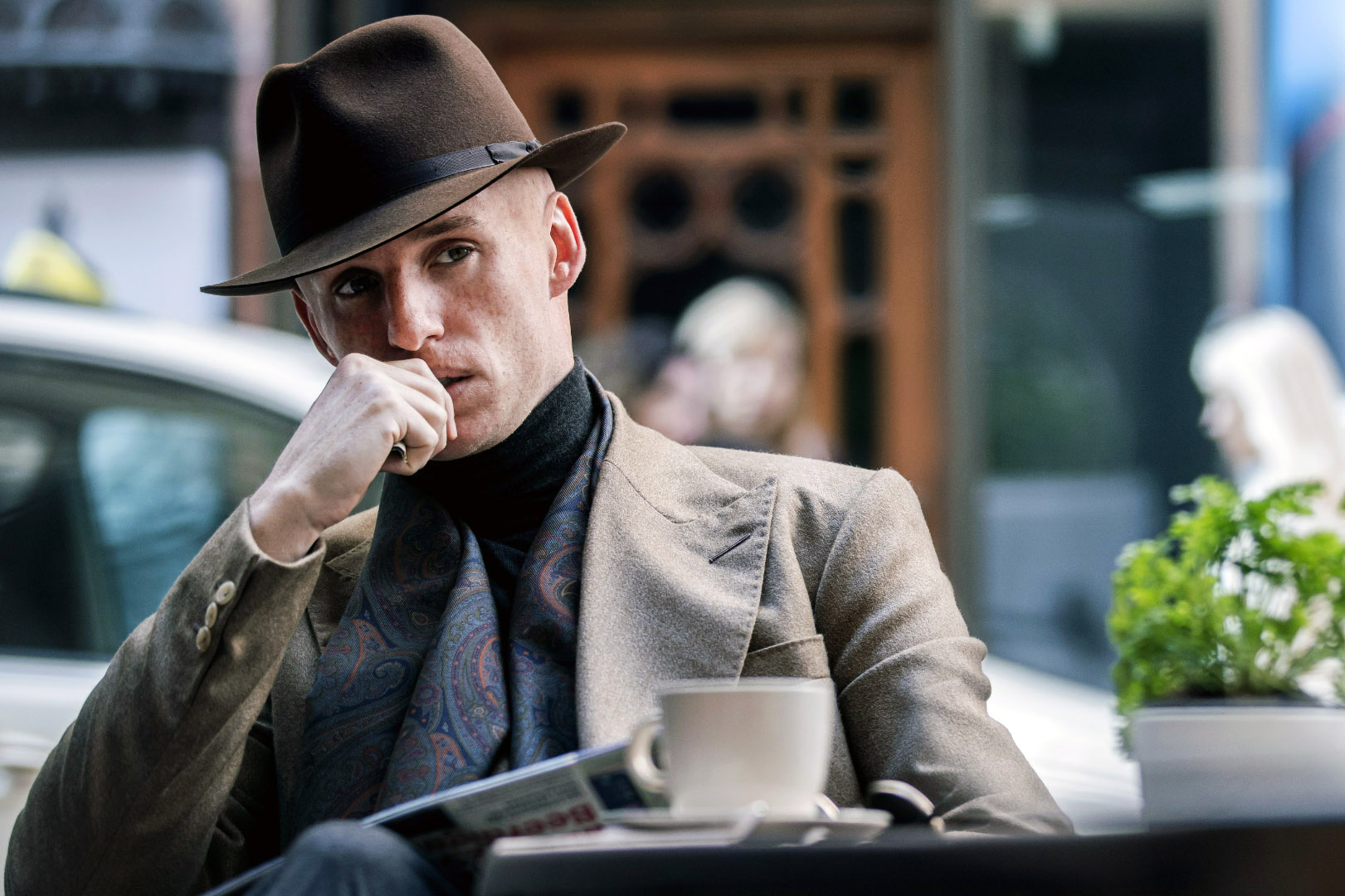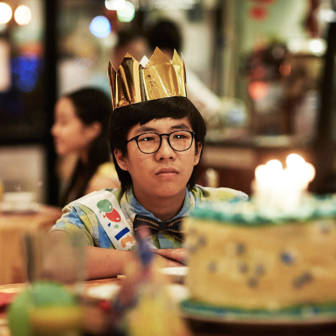It takes some hutzpah to set about remaking The Day of the Jackal. The fact that it has taken almost fifty years for anyone to attempt it is a testament to the forbidding perfectionism of Fred Zimmerman’s 1973 film. In an effective gesture of homage, director Brian Kirk in his new television version has replicated frame-by-frame its most memorable scene: the explosion of the water melon.
The original — a classic piece of cinematic minimalism — managed to shock in an indelibly memorable way by running counter to all the stock-in-trade elements of the violent thriller scene. In a clinically exact sequence, the Jackal walks out into open countryside to test his new custom-made rifle. His target, the melon, is suspended from a branch in a string bag.
At the requisite distance he secures the rifle butt to another tree to ensure steadiness and takes aim. Unsatisfied, he uses a cheap screwdriver — shown in close-up — to adjust a dial on the barrel. Then he takes aim again and fires three shots. The first two puncture the melon, but with the third it explodes in a spray of pink and crimson tatters.
Zimmerman’s approach derived from Frederick Forsyth’s 1971 novel which, with its clean lines of action, concentrated suspense and enigmatic central figure, lent itself readily to dramatisation. The plot is framed by historical events Forsyth witnessed during his time as a young Paris-based Reuters journalist in the early 1960s reporting on the political turmoil surrounding French president Charles De Gaulle.
De Gaulle, having switch his response to Algerian rebels from a hardline military crackdown to negotiation and compromise, had become “the Judas of the Elysée Palace” to sections of the French Foreign legion. A secret organisation, OAS, was formed to plot his assassination. The novel opens with the execution by firing squad of one failed hitman. Every failure, and this only the latest, compounds the difficulty of the next attempt; security ramps up and the organisation is penetrated by government agents scanning for signs of a new plan.
Colonel Mark Rodin of the OAS sets about using the principles and techniques Forsyth applied to the novel. The killer is profiled in advance — “a type of man he did not know existed” — and in negative terms. He cannot be French; there must be nothing distinctive about his appearance; he must be able to appear and disappear without trace; he must have no motivation other than the fee.
Into this empty space, Forsyth conjures the figure of the Jackal, a lanky pale-faced Englishman with an uncanny calm about him and “no expression at all” in his eyes. He asks few questions, for it appears his own researches have pre-empted all the briefing the plotters planned to give him. And, of course, he speaks perfect French, the art of which, according to Forsyth, is to forget the grammar books and the dictionaries and focus on three things: accent, idiom and body language. Essentially the skills of an actor, these contribute to the most distinctive aspect of his genius: he is a chameleon of personae.
The Jackal’s transition from page to screen was surely inevitable, and when Edward Fox stepped into the role, it was a case of impeccable casting. The pallid colouring, light voice and acid charm were all that was required, together with the intelligence and discipline to know how to avoid adding anything else.
Taking on the role in the new television adaptation, Eddie Redmayne scores highly on a checklist of these qualities, though he doesn’t quite have Fox’s natural arrogance, which is the key to an implacable demeanour and chilling sense of authority. Preserving the enigma is the real challenge when the story is transposed to the present and spun out across ten fifty-minute episodes, developing social and political complexities along the way. Icy charm will only get you so far, and the impression of psychological vacancy is unsustainable.
Ingenious as they may be in incorporating sly allusions to Zimmerman’s masterpiece, the production team inevitably lose the clean lines of the plot and the concentrated dramatic focus afforded by a single, charismatic target. De Gaulle is replaced by a figure of more nuanced political significance: a tech mogul who threatens the interests of his peers by developing software that will track the flow of dark money.
The Jackal’s game plan hits some obstacles and quite literally veers off course in ways that involve kidnaps, maniacal car chases and numerous collateral victims. And to keep the story arcs in play, he has a private life, with a beautiful wife (Úrsula Corberó) and a child in a grand villa in the Spanish countryside. Apparently he is genuinely besotted with her. Really? Sceptics will have to wait for the final episodes to find out.
Replacing the dogged and meticulous deputy commissioner Lebel (Michael Lonsdale) as the Jackal’s nemesis is Bianca Pullman (Lashana Lynch), an MI6 firearms expert who is just as ruthless as her quarry in pursuit of her objective.
Ultimately the series works on its own terms, as it has to, and sets itself up for the inevitable comparisons with enough quality ingredients to justify the allure of its title. But those of us whose recollections of the original aren’t sidelined may continue to miss its austerity and laser-like focus.
If your taste runs to political thrillers, there are some fine alternatives on offer, most notably the second season of The Diplomat, with a stellar cast that includes Keri Russell as the US ambassador Kate Wyler and Rufus Sewell as her consort Hal, Ali Ahn as CIA station chief, David Gyasi as the British foreign secretary and Rory Kinnear as prime minister.
The second season extends the plotlines of the first with a cohesive intensity sustained by its focus on one major incident. The suspense structure is the reverse of Forsyth’s: instead of tracking the lead-up to a sensational event, its narrative lines are woven from the fallout. Aspects of a whodunnit are enhanced with some witty lateral thinking from showrunner Debora Cahn as screeds of rhetoric are delivered by a succession of high-profile claimants to the inside story.
In season one a British aircraft carrier was attacked in the Persian Gulf and all forty-one crew killed. As geopolitical tensions threatened to explode, Wyler was posted to London to hose things down. But there was no defusing British PM Nicol Trowbridge, who declared he’d rain hellfire on Iran but then turned the finger of blame towards Russia. When he demanded — and got — US approval for Russian targets, pre-emptive moves were made in the enemy camp.
The cliff hanger season ended with several of the leading characters, including Wyler’s husband Hal, caught in a car bomb explosion. As the plot thickens at the start of season two, there are growing suspicions that the original terrorist attack may be a false flag operation initiated by Trowbridge himself.
Given the trend for celebrities from the entertainment world to take on leading political roles, I’m waiting for Rory Kinnear to become Britain’s next prime minister. He’ll ace it. Fast-talking, fast-thinking, witty, reckless and unpredictable, he’ll give the political media a run for their money. No campaign manager or strategic fixer will be able to keep up with him.
Kinnear has played the part before, as a PM caught up in a particularly nasty blackmail affair in the first episode of Black Mirror and as Churchill in the recently released film The Ministry of Ungentlemanly Warfare. This time, though, he is up against formidable challenges to his scene-stealing capacities, especially with the arrival of vice-president Grace Penn, portrayed with stunning authority by Allison Janney (unforgettable as White House press secretary C.J. Cregg in The West Wing).
It’s a play-off between actors as well as characters. In an attempt to test Kinnear’s reputation for never needing a second take, Janney improvised, coolly throwing grapes at him as he delivered an extended tirade. He didn’t miss a beat, even catching one or two in his mouth without missing a line. Who gets the upper hand in a rhetorical showdown is every bit as compelling as the question of who or what is at the heart of a terrorist incident that promises to take on a second life as a devastating political scandal. •




